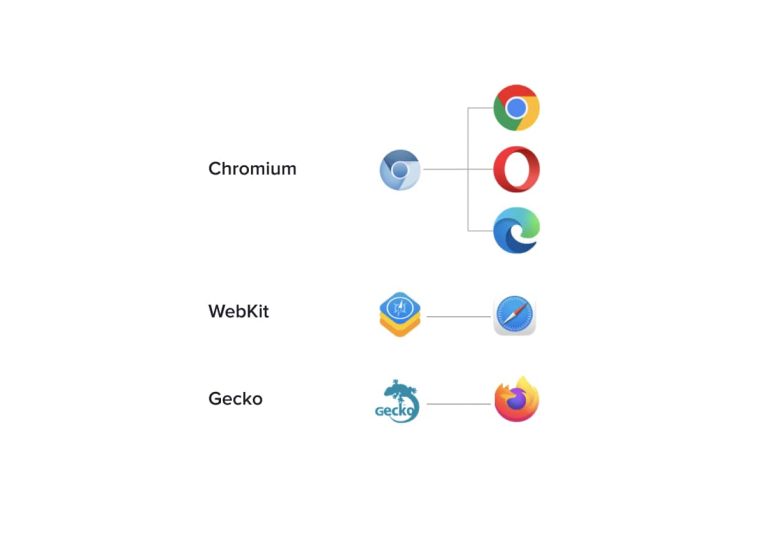A “fork” that depends on the same browser engine and rendering engine is not really a fork, it is just a UI flavor. For the sake of security, privacy and data handling, this choice is as meaningful as changing your desktop environment on Linux.
If you access anything financial or personally identifying (taxes, banking, credit cards, medical services, driver’s license, an email that is linked to any of those accounts, etc) you should use the browser distributed by the engine’s primary developer (Chrome, Safari, Firefox). If you use something else, you are dependent on a downstream third-party developer to properly implement the engine and ensure that its data handling is properly integrated with the browser application and the OS, and you are dependent on their keeping the engine in their knockoff version up to date. You will always be behind the security patches of the main branch, even if the downstream developer is doing everything correctly. On the internet, this is an extreme risk.
Vivaldi is chrom_ium_. Been trying out the last month on macOS. Great browser, although it’s funny how for some settings you get taken to a different page that looks 100% like Chrome except with Vivaldi branding.
Vivaldi on iOS doesn’t feel as great though – less ‘native’. Certain gestures and animations just don’t quite fit.
Shoutout to Webkit-based Orion for both platforms. Slowly gravitating to that
I mean by that logic Nextcloud is just a rebranded skin of Owncloud and Libre Office is just a rebranded skin of Open Office. I’m sure someone can chime in with a more damning real world example but the important distinction with a fork is not “do they entirely replace most of the codebase” but instead it’s “how well do they maintain the project” and “how much value do they add through improvements and features”
Here’s the problem: there are three web browsers.
Chromium, WebKit, and Gecko - that’s it.
A “fork” that depends on the same browser engine and rendering engine is not really a fork, it is just a UI flavor. For the sake of security, privacy and data handling, this choice is as meaningful as changing your desktop environment on Linux.
If you access anything financial or personally identifying (taxes, banking, credit cards, medical services, driver’s license, an email that is linked to any of those accounts, etc) you should use the browser distributed by the engine’s primary developer (Chrome, Safari, Firefox). If you use something else, you are dependent on a downstream third-party developer to properly implement the engine and ensure that its data handling is properly integrated with the browser application and the OS, and you are dependent on their keeping the engine in their knockoff version up to date. You will always be behind the security patches of the main branch, even if the downstream developer is doing everything correctly. On the internet, this is an extreme risk.
Sure, sorry if fork wasn’t the right term, I was just saying LibreWolf is Firefox sans Mozilla. The LibreWolf team is very privacy focused.
Full disclosure I use Vivaldi - which is chrome - because I’m a filthy heathen.
Vivaldi is chrom_ium_. Been trying out the last month on macOS. Great browser, although it’s funny how for some settings you get taken to a different page that looks 100% like Chrome except with Vivaldi branding.
Vivaldi on iOS doesn’t feel as great though – less ‘native’. Certain gestures and animations just don’t quite fit.
Shoutout to Webkit-based Orion for both platforms. Slowly gravitating to that
i will peep Orion - thanks for the heads up.
It’s not though, unless they’re building their own engine.
I mean by that logic Nextcloud is just a rebranded skin of Owncloud and Libre Office is just a rebranded skin of Open Office. I’m sure someone can chime in with a more damning real world example but the important distinction with a fork is not “do they entirely replace most of the codebase” but instead it’s “how well do they maintain the project” and “how much value do they add through improvements and features”
Blasphemer!!
No, there are only two. Blink (Chromium’s engine) was forked from WebKit initially; they’re related.